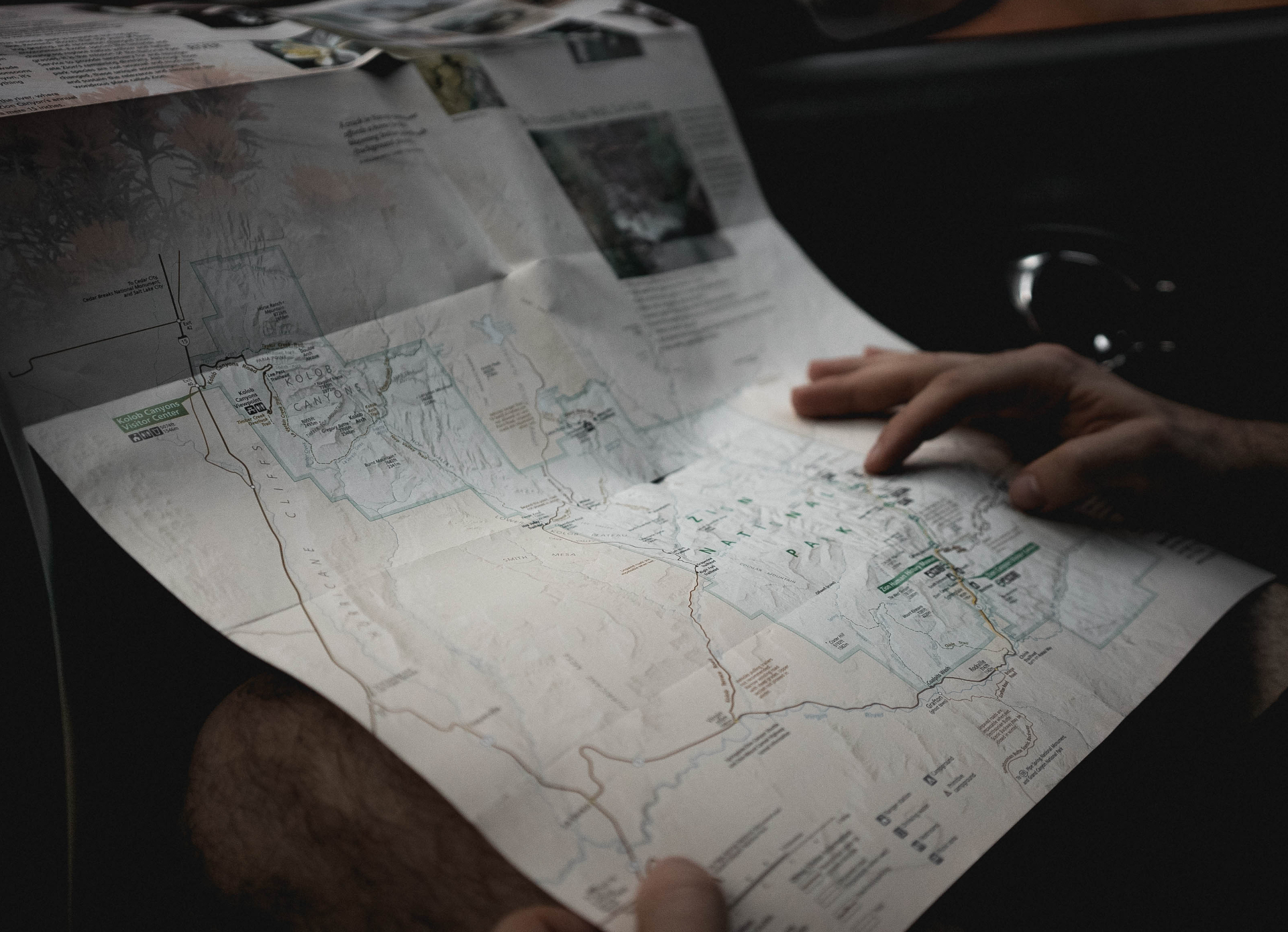Finding My Way: Meaning and Value in My Unique Journey
“Finding my way” is a particularly evocative phrase. In my experience in clinical work, it seems to be a phrase that resonates with individuals at widely different points in their lives. The phrase is as likely to appear in a session with a young adult, as it is in a session with a senior, or a person in middle age. The phrase “finding my way” connects powerfully with one of the most fundamental metaphors for the course of human life: the idea of life as a path or a journey. This metaphor is as deep in the human psyche as it gets. It is archetypal in the truest sense of the word.

Photo by Luca Morvillo
When someone speaks of “finding my way” or “having lost my way”, what do they mean? Well, it can mean any of a number of things.
One thing it almost certainly means is that, regardless of the life stage the person is in, they are struggling with a profound sense of disorientation. Very often, this will be connected with a sense that they did have a clearer orientation or direction at some earlier point, but now that sense or awareness is lost. Usually, in my experience, this sense is accompanied by a strong emotion of distress.
The story that individuals tell themselves about this state of “having lost my way” will make a huge difference to the way individual life unfolds. This is true regardless of the stage of life where the person finds themselves
Is Losing My Way a Normal Part of Life?
In my experience, one of the things that can seem most difficult for a person who has this sense of having lost their way is that they may feel somehow abnormal or pathological. People often have a strong sense of self-judgement when they admit that “I’m having difficulty in finding my way”.
It’s understandable that people would have this reaction. We live in a very goal-oriented culture that strongly impresses upon us that we should be clear and certain about where we are headed at all times, and that we should be individuals who know exactly where we are in our lives and know exactly what it is that we want.
However, the reality of being human is that we will inevitably go through periods of disorientation as we experience change in our circumstances, and very often deep within ourselves. Our modern culture tends to exalt the conscious ego and its powers of understanding and decision, and tends to view disorientation or lack of clarity as weakness or pathology.
This is a strong contrast with many other cultures in the history of the human race. Those cultures recognized that we inevitably have times in our lives when we don’t have clarity and can’t focus clearly on goals or a well-defined way of moving our lives forward.
Often, these cultures would have specific rites of passage as anthropologist Arnold van Gennep referred to them, that were designed to help people find their way through major life transitions. These rites and rituals helped individuals to find their way through times of disorientation, through changes in their identity and through potentially overwhelming changes in the course of their lives.
Much of the anxiety and depression which seems so endemic in our culture is related to major life transitions that individuals face, and which their ego sees no way to resolve. It seems that “finding my way” often requires resources beyond those which the conscious ego can muster.

Photo by Dziana Hasanbekava
Just “Straighten Up and Fly Right”?
One way to interpret my need for “finding my way” is to assume that everybody else has their way sorted out, and that, I don’t, because there’s something inherently wrong with me. If I have this view of my situation, it can be easy to decide that the way to fix what’s wrong with me is to just get with the program and do what everybody else does— to just “Straighten Up and Fly Right”, to quote the title of a 1940s swing tune. Does finding my way amount to just figuring out how to do what everybody else does?
The trouble with such an approach is that it ignores our own unique individuality. As C.G. Jung exhorts,
The only rule worth keeping in mind is staying true to yourself and living life on your own terms.
You cannot use others as the barometer or test of what is truly your own way. We have to find the approach that is uniquely ours and that has vitality and meaning for us. “Finding my way” doesn’t mean finding my way back to what everybody else does, even though we may experience immense pressure to do so. It means that I have to find my way to my own unique course through life. I must stay true to me, and find the way to live life on my own terms. As Jungian analyst Ann Hopwood asserts,
The person aims to become conscious of him or herself as a unique human being, but at the same time, no more nor less than any other human being.
Creative Wayfinding
So, then, what does “finding my way” mean for me? Above all else, it means genuinely trusting and valuing who we really are. Connected to that is the belief and faith that there is a part of ourselves, at the most fundamental level, that can follow the traces and start to move towards the way that is most fundamentally right for ourselves.
It can be easy to be motivated by seeking status and approval of others. Yet that approach can lead us down paths that have nothing to do with genuinely finding our way. One of the constants I experience in my practice is the large number of people who have a strong sense of regret in the second half of their lives. Often this feeling revolves around courses of action that an individual has taken because significant people in their lives wanted them to do so.
As individuals, we need to be tapping into and living out what is genuinely ours—finding my way in the most fundamental sense. To get to this sense of what is really ours, and what we really want for ourselves, can require looking very deeply at ourselves in a self-compassionate way that accepts and values who we really are. Working with a supportive Jungian depth psychotherapist can be deeply helpful in the midst of times of profound decision making.
I wish you every good thing on your personal journey,
Brian Collinson
Registered Psychotherapist and
Certified Jungian Analyst (IAAP)
Certified Clinical Anxiety Treatment Professional
© Brian Collinson, 2023
